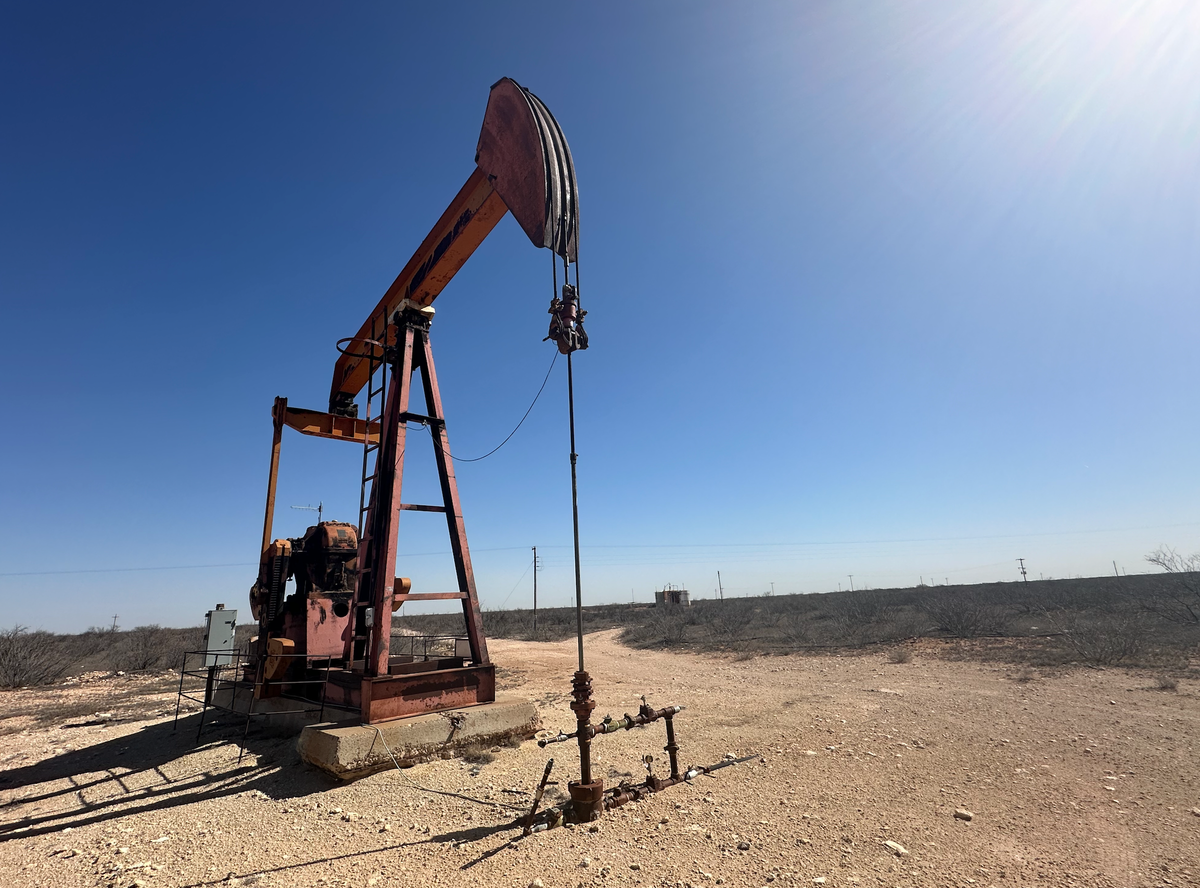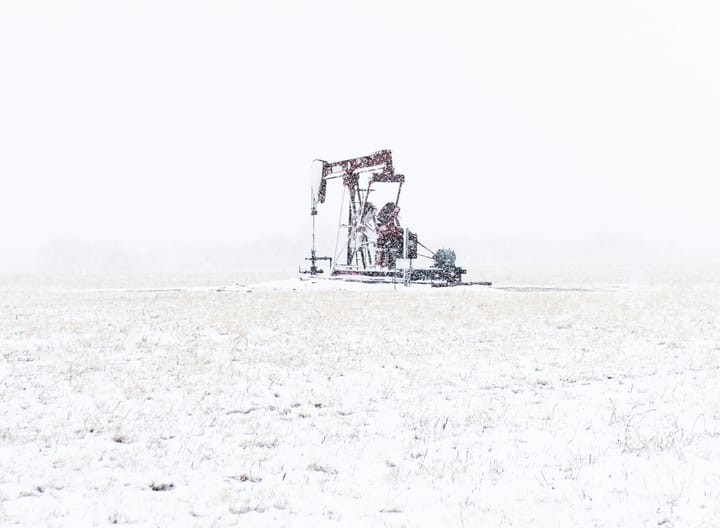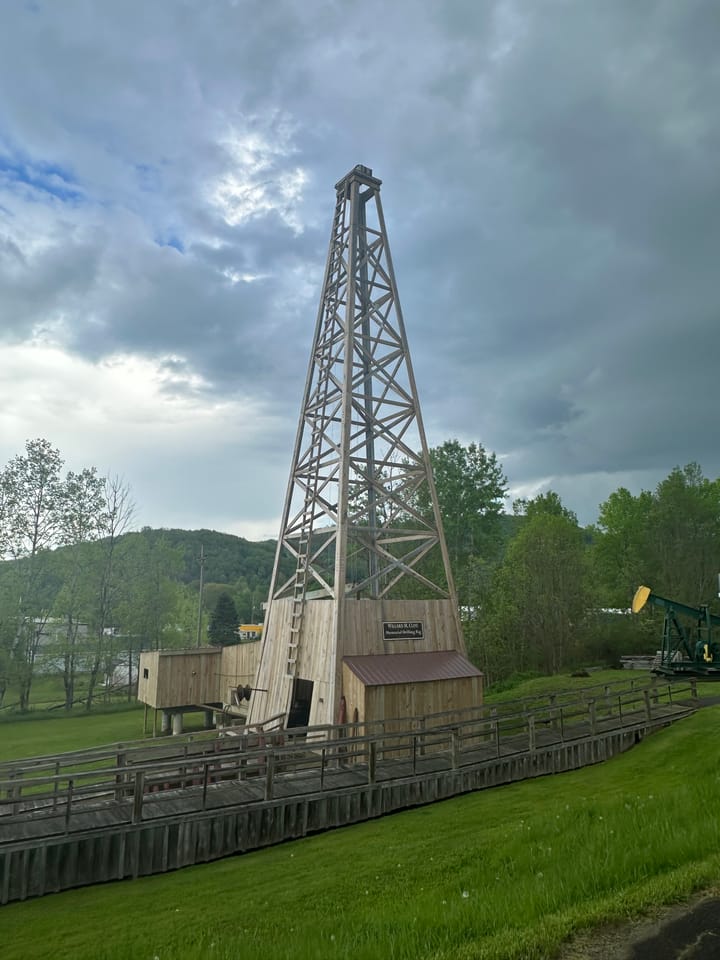Learning from California As It Becomes An Orphan Petrostate

By 1910, California was producing roughly a fifth of the world’s crude oil. Today it is producing roughly a fifth of the oil consumed by the state.
In addition to experiencing serious oil production decline, California is also a “fuel island” due to the geographical and regulatory constraints on the state. Which makes it an excellent case study for what happens when one of the world’s major economies, with a history of crude oil production, has a dying oil industry and declining gasoline consumption. California is currently facing a question the rest of the country and world will be facing at some point: how to manage the decline of the oil industry?
Public Getting the Bill for Asset Retirement Obligations
In California, the oil majors are walking away from their asset retirement obligations (aka cleanup obligations). This is a long-employed strategy by the fossil fuel extraction industry that allows them to take all of the profits and then leave the public with the liabilities. What this means is that the public already effectively owns the liabilities of the oil industry in America. The public chipped in $4.7 billion for abandoned well cleanup in 2022. It's just the beginning. The industry knows this but is planning on the public not realizing it for another couple of decades. At which point, the profits will be gone and the industry will be free to move on.
Ongoing Regulatory Failure
I recently wrote about how this is playing out in California. Despite new rules supposedly requiring oil companies to set aside the cleanup funds up front, the latest major oil company deal in California resulted in the companies arguing that wasn’t necessary and the state regulator agreed.
This really is all going as expected. In May, a 28-year veteran of the oil regulatory agency went to work for oil company California Resources Corporation (CRC) as its new vice president of Regulatory Affairs. That same regulatory agency then ruled that CRC wasn’t required to bond $2.4 billion for asset retirement obligations. Not a bad “win” for the VP of Regulatory Affairs just a few months after starting the new job at CRC. Last week, when it was pointed out that this didn’t look good, the head of the regulatory agency resigned. Mission accomplished, I guess, as CRC is not putting up the money to bond for cleanup of the oil wells.
This is how petrostates currently manage decline. Personal enrichment for a few while moving the liabilities to the public. This is why it is correct to state that the U.S. public effectively already owns the liabilities of the oil and gas industry. The question remains, as the owners of the liabilities, will we the public be able to get the oil companies to pay to clean up the mess they made?
A Plan for Managing Decline
While the state of California is doing a horrible job of holding the oil industry accountable for its asset retirement obligations, they aren’t completely oblivious to what is happening. They are facing a real issue that many economies will face as the oil industry goes into decline. They still need gasoline for a few decades but what if all of the oil companies close their refineries and leave the state because it is no longer profitable to run a refinery in California with declining demand for its products? Price spikes and shortages for California residents are a very likely outcome if refineries start to close. Which is why the state of California has proposed, in a report released this month, that the state should consider buying some or all of the refineries in California to be able to ensure adequate gasoline supply for its population as the state transitions off of internal combustion vehicles. In the state’s analysis they foresee big declines in gas consumption.
Which is why the oil majors are all headed for the exits in California. The remaining future profits of the California oil industry are much smaller than the current liabilities. There will be a major decline in fossil fuel demand. The question is will it be “lumpy” (as the new California report puts it) or will it be managed in a way to minimize economic harms to the public?
With that in mind, the state suggests considering buying refineries.
Public ownership of oil, gas, coal and power systems is increasingly being suggested as the best option for a managed decline of the fossil fuel industry. And since we already own the liabilities, it seems logical that we need to seriously consider owning the remaining assets to fully fund those liabilities.
The Public Ownership Managed Decline Paradox
We know that we must use less oil and gas to address the climate crisis while at the same time the oil companies are promising that they will be producing oil and gas for decades.
When thinking about ways to accomplish a managed decline, one obvious solution is to eliminate the profit-motive of the U.S. based oil companies via public ownership. With public ownership it would be possible to implement a plan for managed decline of the oil industry. This approach also offers a pathway for the public — which is already on the hook for the hundreds of billions of liabilities — to use remaining oil industry profits to pay for those liabilities. However, what California is showing us is that once an oil industry is in serious decline and it is time to start paying to clean up the mess, the big oil companies walk away. It’s good to remember what the former CEO of Exxon said, “I’m not a U.S. company and I don’t make decisions based on what’s good for the U.S.”
Just like the industry has abandoned millions of orphan wells across the country it is setting up to abandon California and create the first “orphan state” of the U.S. oil industry
This is happening, because as Carbon Tracker’s analysis shows, the oil remaining in California has far less value than the existing cleanup liabilities. The only financial path forward for the California oil industry is bankruptcy. It’s just a matter of when. Continuing to allow these companies to take profits while not funding the liabilities is simply corporate welfare.
As California is showing us, what is necessary for determining U.S. policy for a managed decline of oil is to determine when the country as a whole reaches the point where the remaining oil assets can still pay for the outstanding liabilities. It is highly likely the oil industry knows when this will happen. And that is when they will walk away and leave the mess for the public. In the meantime the industry is busy taking all of its profits to use for stock buybacks and dividends. The money that should be set aside for cleaning up the massive environmental liabilities left behind by the oil industry is being given to investors. Those investors will take the profits and have no responsibility to use any to clean up the mess.
Managed decline is normally proposed as a way to reduce emissions to address the climate crisis. What California is showing us is that it also may be required so that the oil industry doesn’t abandon certain areas long before they have transitioned off of oil and gas. As a society it is in everyone’s best interest to have a managed decline instead of just having the oil industry walk away when the profits are gone.
We need a managed decline to make sure we reduce emissions on a timely matter. We also apparently need a managed decline because once the profits are gone, the oil industry will walk away with its profits and leave huge financial liabilities and chaos for the public.
And the oil industry has shown us they have no interest in being part of a conversation about a managed energy transition. Do we have a plan? We don’t. But more people seem to be realizing that we need one.
Collective Delusions Being Challenged
In this line of work I often find that we buy into collective delusions where certain situations are simply accepted and not challenged. One example of this is the fact that the big oil companies do not have to set aside the money to properly retire assets and clean up their mess because they are supposedly “good for the money.” This is absurd. But it is also the current policy.
We won’t solve our problems by continuing to accept these delusions.
Earlier this month David Levitan of Splinter wrote an essay called, “Why Is the Oil Industry Still Thriving?” in which he argues against one of these delusions,.
“The constant argument in their favor is “we’re not going to stop burning fossil fuels tomorrow.” Sure. But why does that mean they have the same capitalistic carte blanche as any other company or industry? We — people, societies — can make the rules!”
I know people will respond to that sentence with a knowing smirk and maybe say something like, “No, the oligarchs do.” It is my first response, too. However, if we want to solve the rather serious problems we are facing, we can’t let the likes of Elon Musk have the final say and we will need to have people and societies have a say. Levitan then reveals what would happen if we stopped buying into these collective delusions.
“The logical, politics-free answer would be that every government on earth would nationalize the [oil] industry with the explicit and statutory goal of ending it — set timelines not just for emissions and solar capacity, but also for limits on oil extraction and use. Literally schedule an end date for ExxonMobil and Chevron and the like; they had decades to pivot and chose the exact opposite path, salting the earth for anyone else’s idea of a transition to a cleaner world. Fuck ’em.”
It’s a good point.
Last week Tzeporah Berman, co-founder of environmental nonprofit Stand.earth, wrote an op-ed for The Globe and Mail making some of the same points.
“Focusing on capturing emissions is clearly failing us. What we produce today will be what we use tomorrow. This doesn’t mean turning off the taps overnight but it does mean stopping expansion of fossil fuels, and managing a planned wind down that leaves no one behind. We have to stop pretending we are “in a transition” and “phasing out fossil fuels” while we are building more of the problem. ”
Also last week University of Purdue professor Kevin Kircher posted his conclusion on BlueSky.
These arguments are in line with the conclusion of the recent Scientific American op-ed I wrote with Sharon Wilson of Oilfield Witness.
“The facts are clear that the only viable path to addressing methane emissions is strong and courageous intervention from government to rapidly build out clean energy resources while phasing out oil and gas production.”
The science is clear that to avoid catastrophic climate change we need to start rapidly reducing greenhouse gas emissions. That isn’t up for debate. Unfortunately, it appears we are still engaged in some rather large collective delusions about how we can do this.
I have argued that the U.S. oil industry as a whole will be in decline in the next few years. It is becoming increasingly clear that will require active management to avoid chaos. What is the plan? There are many arguments against the approach of public ownership and managed decline that Dave Levitan, the state of California and others are suggesting. However, I’ve yet to see another realistic plan on how the public can hold the oil companies financially accountable for the mess they have made while also ensuring an orderly transition off of fossil fuels.
People Power in California
This week the people of Richmond, California got a win over Chevron. Chevron owns a refinery in Richmond and the citizens were getting ready to vote in November to start collecting a tax on the refinery. Now Chevron has agreed to make payments to the city of Richmond instead of allowing the citizens to vote. Why? This might be the reason.
"We were talking to hundreds of voters a day and they were excited to vote in November. They were excited to hold big polluters accountable”
Excited to hold big polluters accountable. Chevron made a bet that it was in their interest to not let the public go on record about just how excited they were to hold big polluters accountable and thus Chevron agreed to pay the city of Richmond $550 million. The country as a whole likely needs one thousand times that much money to just deal with the mess the oil industry has made. We better start asking for it. And, if they are unwilling to pay, we need to discuss public ownership of the industry.
As Dave Levitan argued, “We — people, societies — can make the rules!”



Comments ()